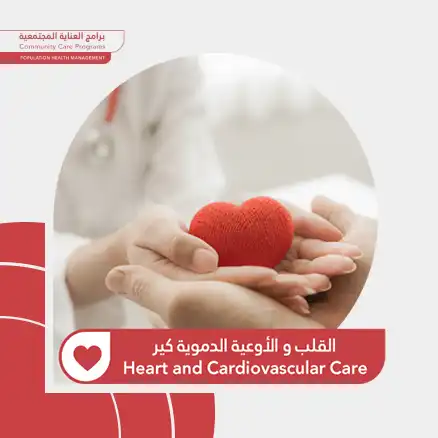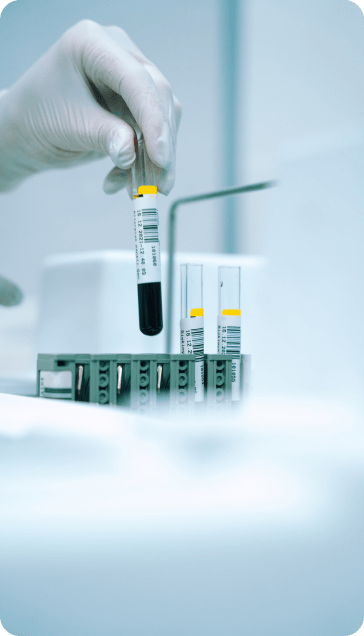List of Included Tests - 21 Tests
A complete blood count (CBC) is a blood test used to evaluate your overall health and detect a wide range of disorders, including anemia, infection, platelets disorders and leukemia.
Triglycerides are insoluble lipid in the blood ,present in dietary fat ,synthesised by the liver and stored in adipose tissue.Elevated levels of TG may be associated with risk of cronary artery disease and acute pancreatitis.
LDL cholesterol is considered the “bad” cholesterol, because it contributes to fatty buildups in arteries (atherosclerosis). This narrows the arteries and increases the risk for heart attack, stroke and peripheral artery disease (PAD).
Non-HDL cholesterol evaluates your high-density lipoprotein (HDL, or “good”) cholesterol number from your total cholesterol number. So it contains all the “bad” types of cholesterol.Higher values mean a higher risk of heart disease.
Glycated Haemoglobin (HbA1c) is a blood test that is used to help diagnose and monitor people with diabetes. It measures the amount of blood sugar (glucose) attached to your hemoglobin. It shows your average blood sugar level over the past 2 or 3 months.The higher the hemoglobin A1c, the higher your risk of having complications related to diabetes.
A sodium blood test measures the amount of sodium in your blood. Sodium is a type of electrolyte. Electrolytes are electrically charged minerals that help maintain fluid levels and the balance of chemicals in your body called acids and bases. Sodium also helps your nerves and muscles work properly.
Chloride is very important in maintaining the acid-base balance and PH. It plays with sodium an important role in regulating the osmotic balance of body fluids.
BMI is a person’s weight in kilograms (or pounds) divided by the square of height in
meters (or feet). A high BMI can indicate high body fatness. BMI screens for weight categories that may lead to health problems, but it does not diagnose the body fatness or health of an individual.
This test measures how well your kidneys are performing their job of filtering waste from your blood. Creatinine is a chemical compound left over from energy-producing processes in your muscles. Healthy kidneys filter creatinine out of the blood. Creatinine exits your body as a waste product in urine
Cholesterol is a waxy substance found in your blood. Your body needs cholesterol to build healthy cells, but high levels of cholesterol can increase your risk of heart disease.
This ratio compares your total-cholesterol-to-HDL ratio. It helps figure out your risk for coronary heart disease and stroke. The American Heart Association recommends that all adults older than 20 have a lipid profile once every 4 to 6 years as long as your risk for cardiovascular disease stays low.
The high-sensitivity C-reactive protein (hs-CRP) test is a blood test that measures (CRP) even in low levels. This protein measures general levels of inflammation in your body. The hs-CRP can be used to find the risk for heart disease and stroke in people who don’t already have heart disease.
This test measures the amount of nitrogen in your blood that comes from the waste product urea. A small amount of urea nitrogen in your blood is normal. If you have too much urea nitrogen in your blood, your kidneys aren’t filtering it properly. You may have a condition that’s affecting your kidneys’ health. A BUN test is done to see how well your kidneys are working.
A potassium blood test measures the amount of potassium in your blood. Potassium is a type of electrolyte. Electrolytes in your body help control muscle and nerve activity, maintain fluid levels, and perform other important functions. Your body needs potassium to help your heart and muscles work properly.
Blood pressure is the force of blood on the walls of blood vessels, through which it travels to supply all the tissues and organs of the body with food, oxygen, water and enzymes in what is known as the circulatory system.
Preparation
- Fasting from 10 to 12 Hours is required




